 This year’s annual conference of BNAC (Britain-Nepal Academic Council) will be held on April 24-25 at Liverpool John Moores University. Dr. Pramod Regmi, Principal Academic in International Health in the Department of Nursing Sciences, will be a panellist on a Round Table discussion on the topic of ‘The Hidden Burden of Migration: Struggles of Nepalese Labour Migrants from Departure to Return’.
This year’s annual conference of BNAC (Britain-Nepal Academic Council) will be held on April 24-25 at Liverpool John Moores University. Dr. Pramod Regmi, Principal Academic in International Health in the Department of Nursing Sciences, will be a panellist on a Round Table discussion on the topic of ‘The Hidden Burden of Migration: Struggles of Nepalese Labour Migrants from Departure to Return’.  This contribution is inspired by history of BU research into the health and well-being of migrant workers from Nepal by Dr.Regmi, Dr. Nirmal Aryal, Dr. Orlanda Harvey, Prof. Edwin van Teijlingen as well as Bournemouth University PhD students Yagya Adhikari and Anjana Regmi Paudyal. Dr. Regmi’s more recent publications on the topic include papers on: modern slavery [1], kidney disease [2-4], pre-departure training of aspiring migrant workers in Nepal [5], moral panics and societal fear around migrant workers and COVID-19 [6-7], Nepalese migrant workers in Malaysia [8-9], left-behind families of migrant workers [10], migrant workers and the 2022 FIFA male football world cup [11-12], Nepalese migrants in the UK [13] as well as literature review [14].
This contribution is inspired by history of BU research into the health and well-being of migrant workers from Nepal by Dr.Regmi, Dr. Nirmal Aryal, Dr. Orlanda Harvey, Prof. Edwin van Teijlingen as well as Bournemouth University PhD students Yagya Adhikari and Anjana Regmi Paudyal. Dr. Regmi’s more recent publications on the topic include papers on: modern slavery [1], kidney disease [2-4], pre-departure training of aspiring migrant workers in Nepal [5], moral panics and societal fear around migrant workers and COVID-19 [6-7], Nepalese migrant workers in Malaysia [8-9], left-behind families of migrant workers [10], migrant workers and the 2022 FIFA male football world cup [11-12], Nepalese migrants in the UK [13] as well as literature review [14].

Bournemouth University is further involved in two presentation originating from the project studying the impact of the introduction of federalisation in Nepal on its health system. Details about our project are on the website Nepal Federal Health System Project. This study was funded by the UK Health Systems Research Initiative [Grant ref. MR/T023554/1] to study the consequences for the health system of Nepal’s move from a centralised political system to a more federal government structure in 2015.
Our interdisciplinary joint project was led by the University of Sheffield in collaboration with Bournemouth University, the University of Huddersfield, Canterbury Christ Church University and two institutions in Nepal, namely Manmohan Memorial Institute of Health Sciences (in Nepal) and PHASE Nepal. In late 2022 further funding was awarded by 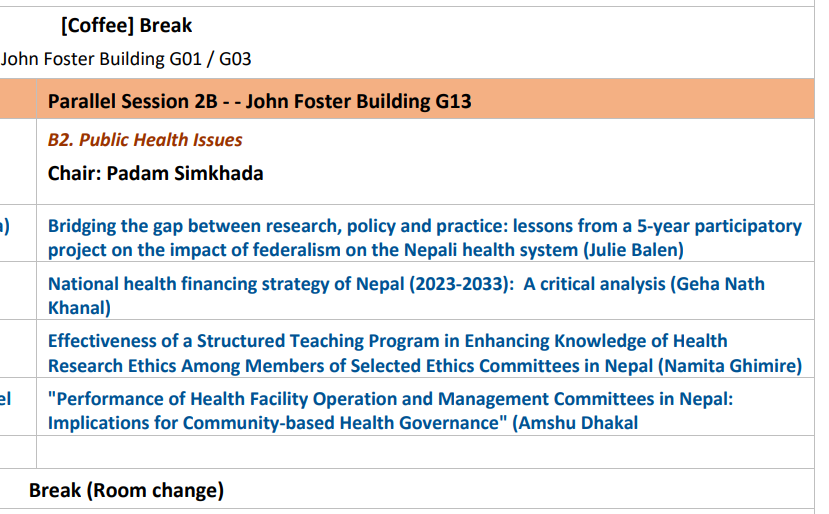 the Medical Research Foundation to Prof. Julie Balen, from Canterbury Christ Church University, to disseminate the findings of our UK Health Systems Research Initiative-funded research in Nepal. These two papers will be presented by our collaborators, namely Prof. Julie Balen of Canterbury Christ Church University and Ms. Amshu Dhakal from Manmohan Memorial Institute of Health Sciences in Kathmandu, Nepal.
the Medical Research Foundation to Prof. Julie Balen, from Canterbury Christ Church University, to disseminate the findings of our UK Health Systems Research Initiative-funded research in Nepal. These two papers will be presented by our collaborators, namely Prof. Julie Balen of Canterbury Christ Church University and Ms. Amshu Dhakal from Manmohan Memorial Institute of Health Sciences in Kathmandu, Nepal.
References:
- Paudyal, A. R., Harvey, O., Teijlingen, E. van, Regmi, P. R., Sharma, C. (2024). Returning Home to Nepal after Modern Slavery: Opportunities for Health Promotion. Journal of Health Promotion, 12(1), 125–132. https://doi.org/10.3126/jhp.v12i1.72713
- Aryal, N., Sedhain, A., Regmi, P.R., KC, R. K., van Teijlingen, E. (2021). Risk of kidney health among returnee Nepali migrant workers: A survey of nephrologists. Asian Journal of Medical Sciences, 12(12), 126–132. https://doi.org/10.3126/ajms.v12i12.39027
- Aryal, N., Regmi, P.R., Sedhain, A., KC, R.K., Martinez Faller, E., Rijal, A., van Teijlingen, E. (2021) Kidney health risk of migrant workers: An issue we can no longer overlook. Health Prospect 20(1):15-7
- Regmi, P., Aryal, N., Bhattarai, S., Sedhain, A., KC, R.K. and van Teijlingen, E. (2024) Exploring lifestyles, work environment and health care experience of Nepalese returnee labour migrants diagnosed with kidney-related problems, PLoS One 19(8): e0309203. https://doi.org/10.1371/journal.pone.0309203
- Regmi, P., Aryal, N., van Teijlingen, E., KC, R.K., Gautam, M. and Maharjan, S. (2024). A Qualitative Insight into Pre-Departure Orientation Training for Aspiring Nepalese Migrant Workers. Tropical Medicine and Infectious Disease, 9 (7).
- Aryal, N., Regmi, P., Adhikari Dhakal, S., Sharma, S. and van Teijlingen, E. (2024). Moral panic, fear, stigma, and discrimination against returnee migrants and Muslim populations in Nepal: analyses of COVID-19 media content. Journal of Media Studies, 38 (2), 71-98.
- Regmi, P., Dhakal Adhikari, S., Aryal, N., Wasti, S.P., van Teijlingen, E. (2022) Fear, Stigma and Othering: The Impact of COVID-19 Rumours on Returnee Migrants and Muslim Populations of Nepal, International Journal of Environmental Research & Public Health 19(15), 8986; https://doi.org/10.3390/ijerph19158986
- Chaudhary, M.N., Lim, V.C., Faller, E.M., Regmi, P., Aryal, N., Zain, S.N.M., Azman, A.S. and Sahimin, N. (2024). Assessing the basic knowledge and awareness of dengue fever prevention among migrant workers in Klang Valley, Malaysia. PLoS ONE, 19 (2).
- Chaudhary, M.N., Lim, V.C., Sahimin, N., Faller, E.M., Regmi, P., Aryal, N. and Azman, A.S. (2023). Assessing the knowledge of, attitudes towards, and practices in, food safety among migrant workers in Klang Valley, Malaysia. Travel Medicine and Infectious Disease, 54.
- Adhikari, Y., Regmi, P., Devkota, B. and van Teijlingen, E. (2023). Forgotten health and social care needs of left-behind families of Nepali migrant workers. Journal of Health Promotion, 10, 1-4.
- Regmi, P., Simkhada, P., Aryal, N., van Teijlingen, E. (2022) Excessive mortalities among migrant workers: the case of the 2022 FIFA World Cup. Europasian Journal of Medical Sciences, 4:31-32. https://doi.org/10.46405/ejms.v4i0.455
- Simkhada, P., van Teijlingen, E. and Regmi, P. (2022). Migrant Workers in Qatar: Not just an important topic during the FIFA World Cup 2022. Health Prospect: Journal of Public Health, 21 (3), 1-2.
- Simkhada, B., Sah, R.K., Mercel-Sanca, A., van Teijlingen, E., Bhurtyal, Y.M. and Regmi, P. (2021). Perceptions and Experiences of Health and Social Care Utilisation of the UK-Nepali Population. Journal of Immigrant and Minority Health, 23 (2), 298-307.
- Mahato, P., Bhusal, S., Regmi, P., van Teijlingen, E. (2024). Health and Wellbeing Among Nepali Migrants: A Scoping Review. Journal of Health Promotion, 12(1): 79–90. https://doi.org/10.3126/jhp.v12i1.72699




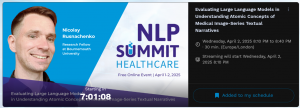

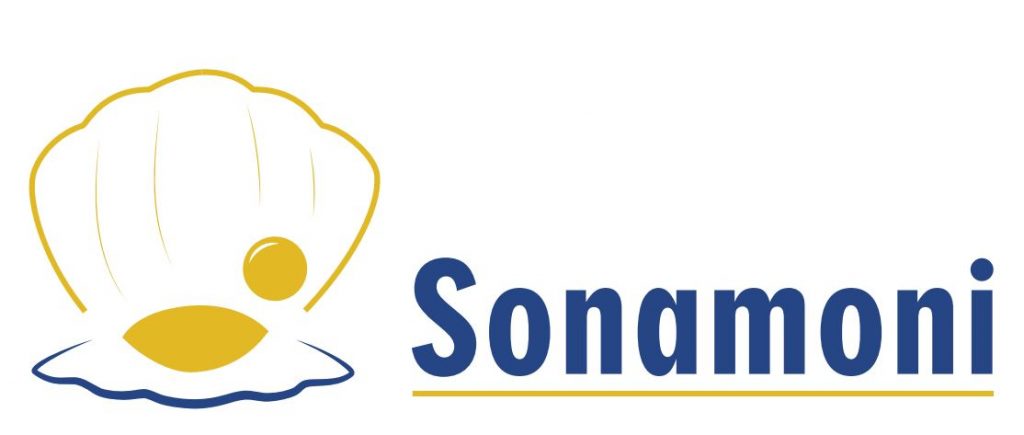
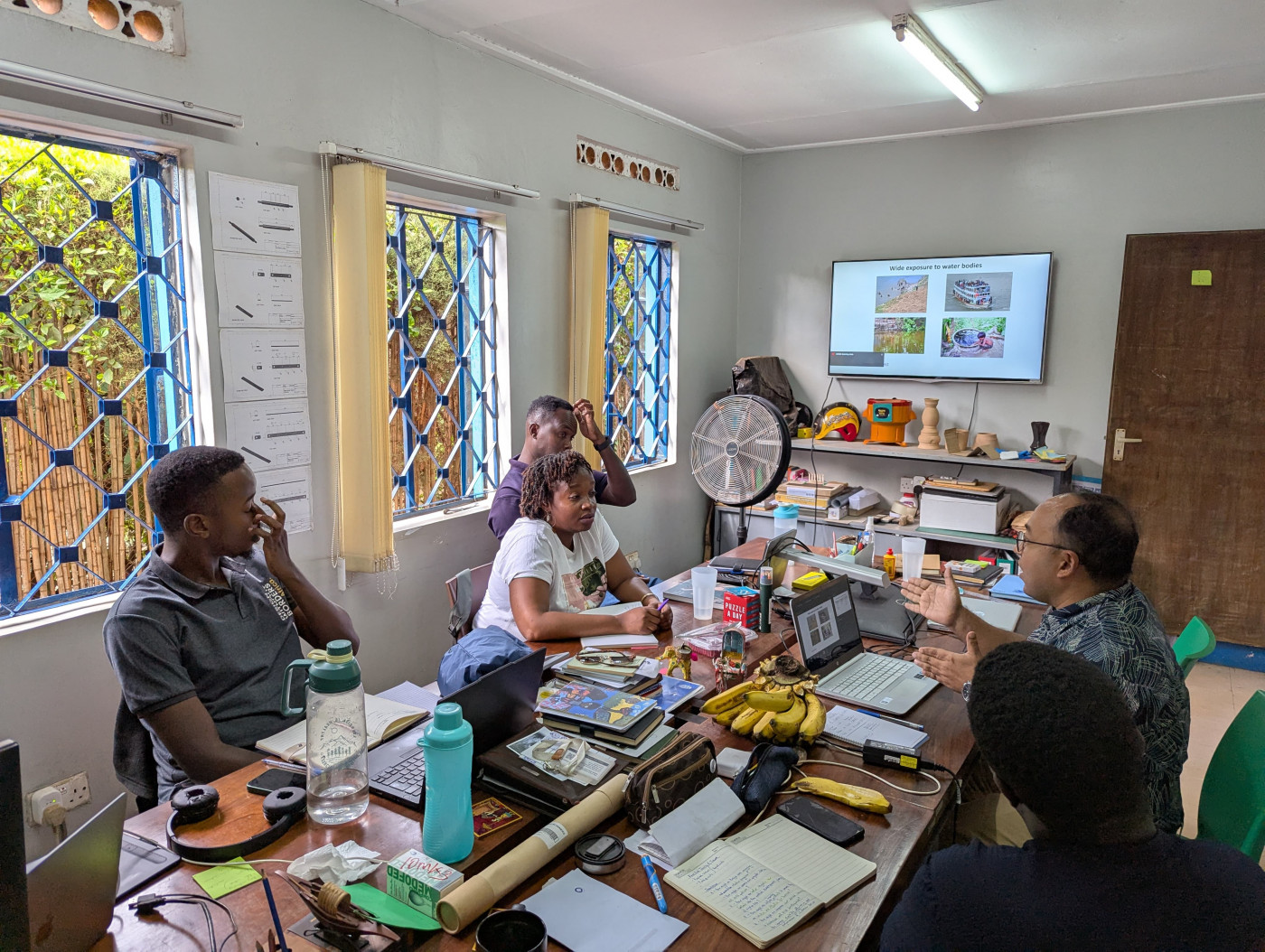

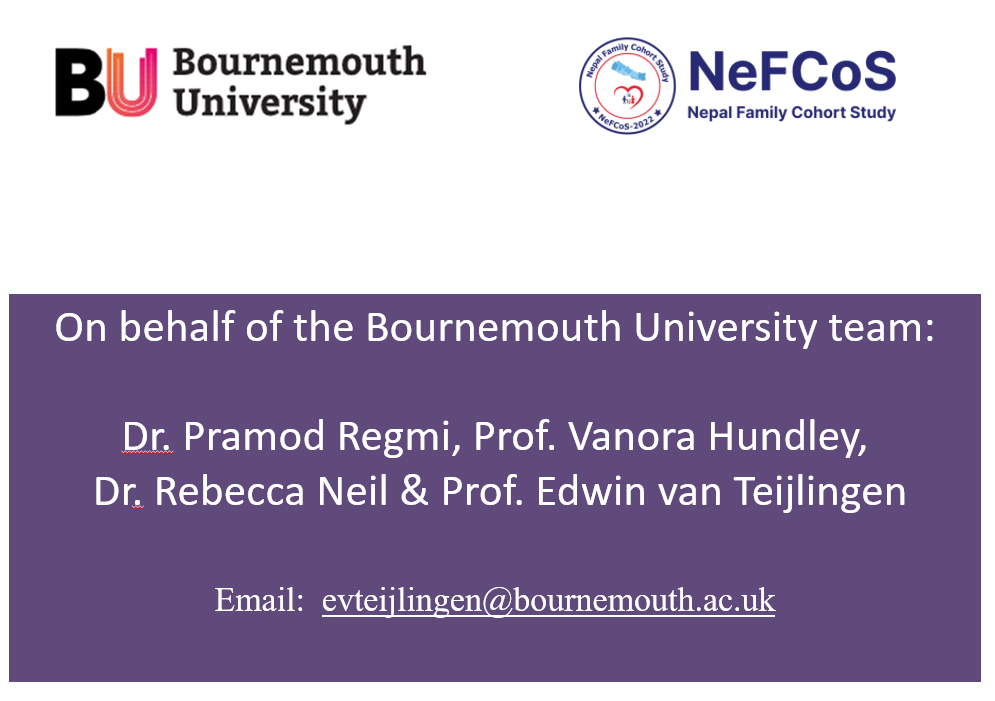
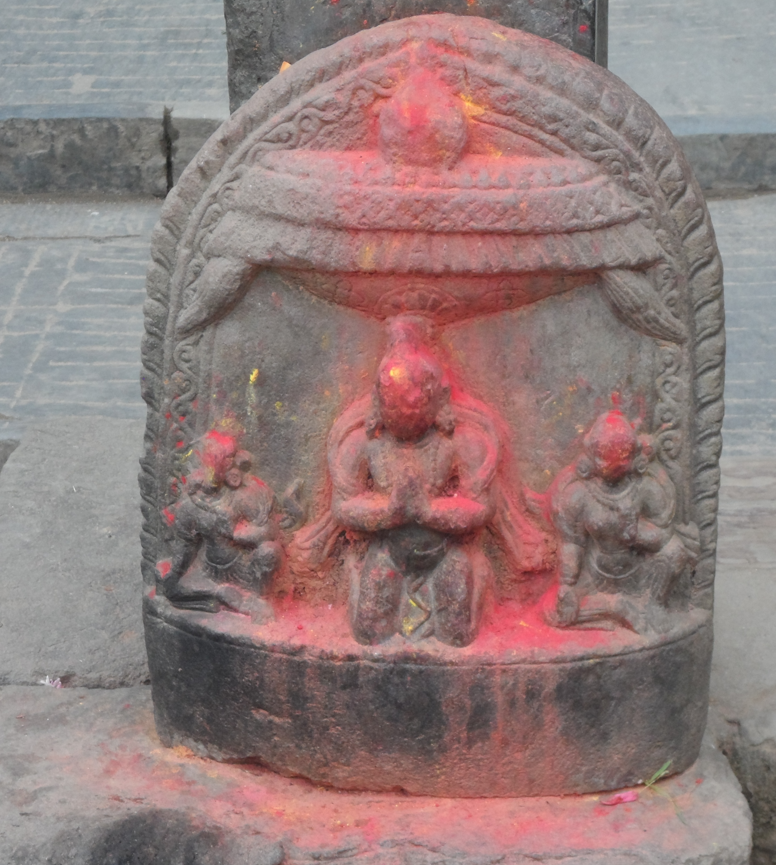
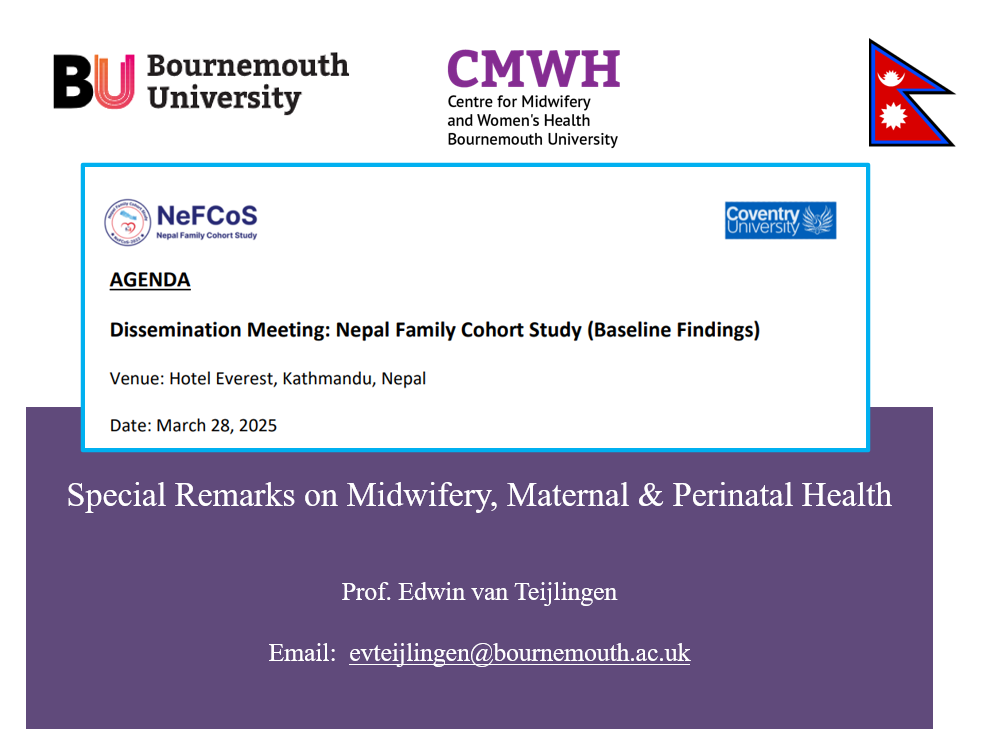


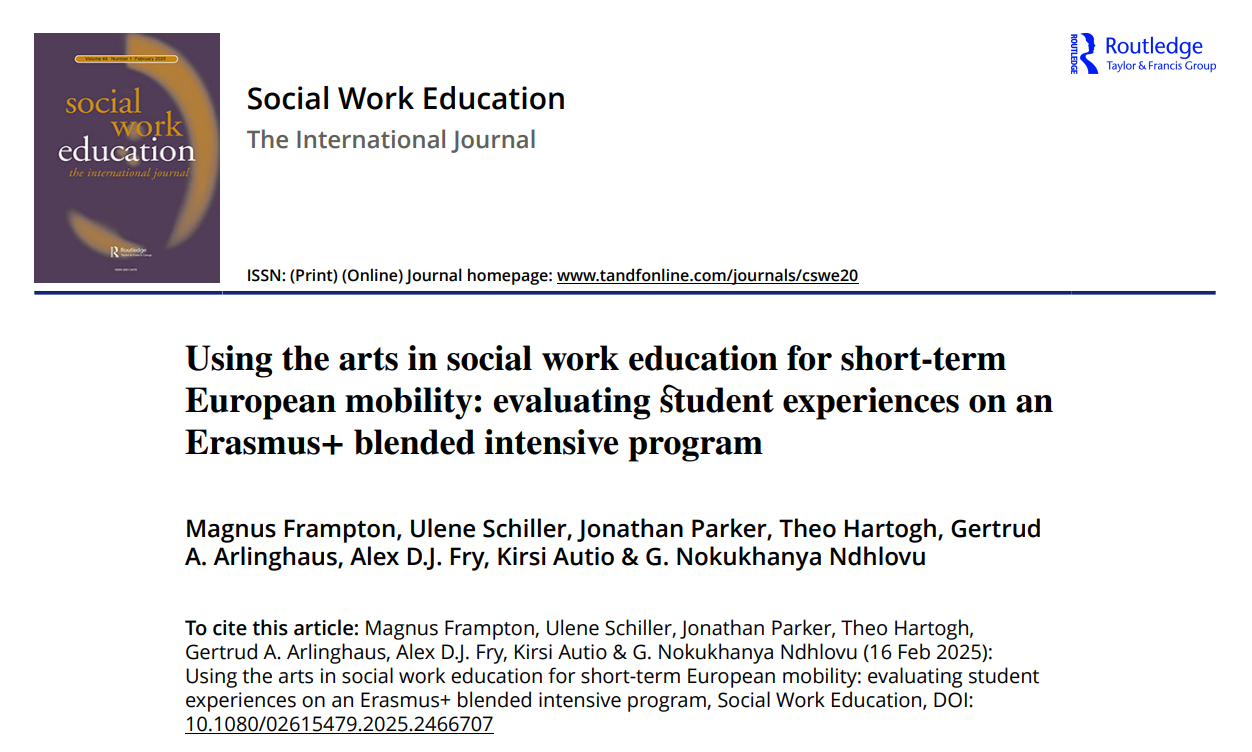
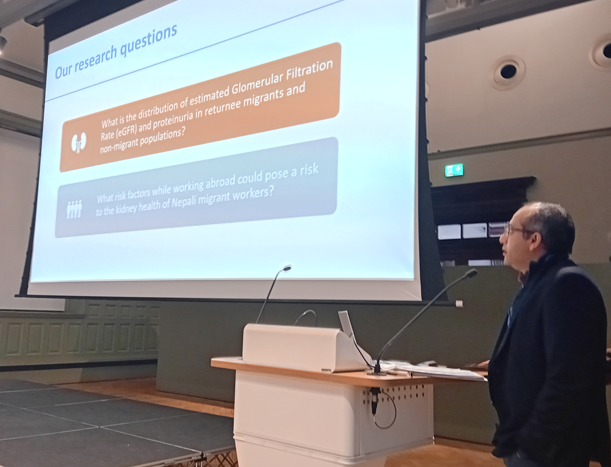
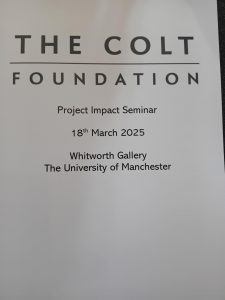
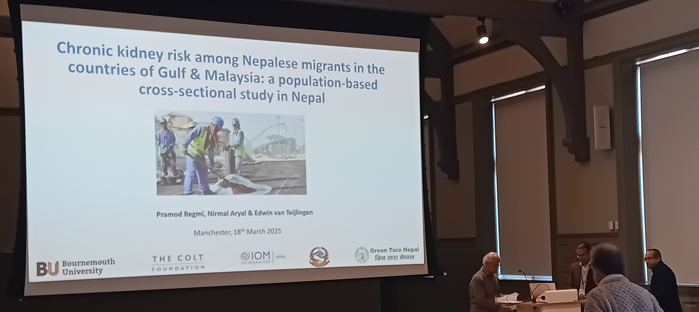


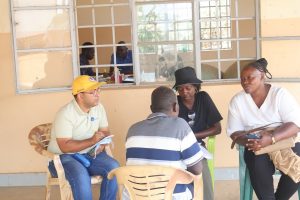
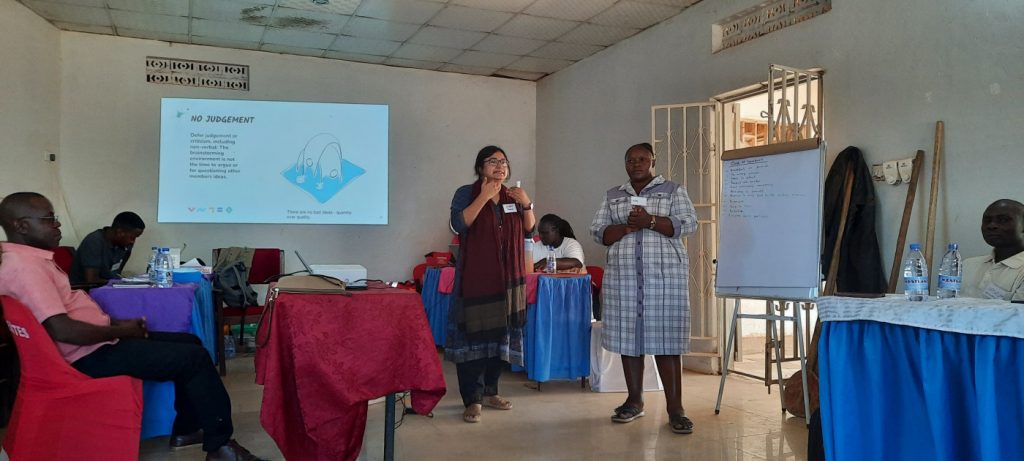


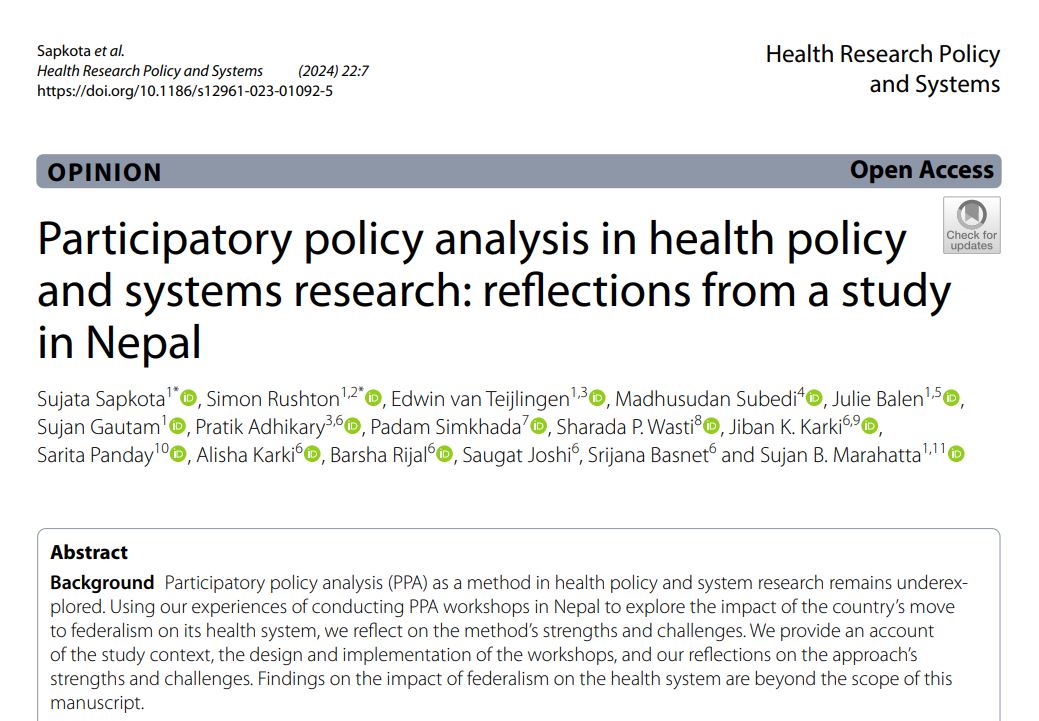
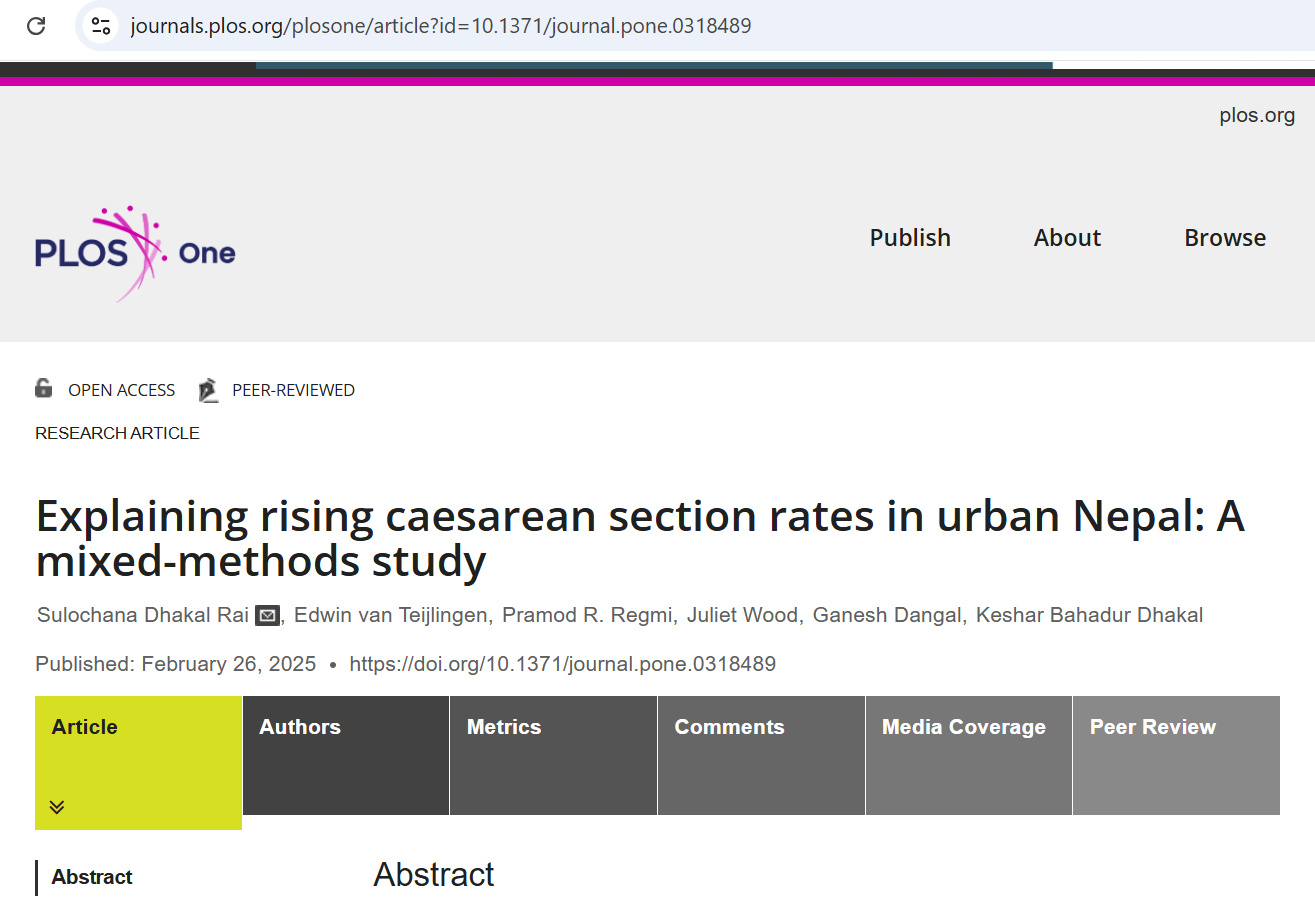
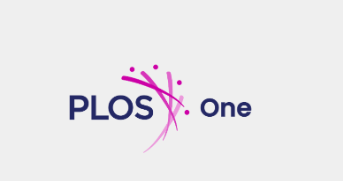


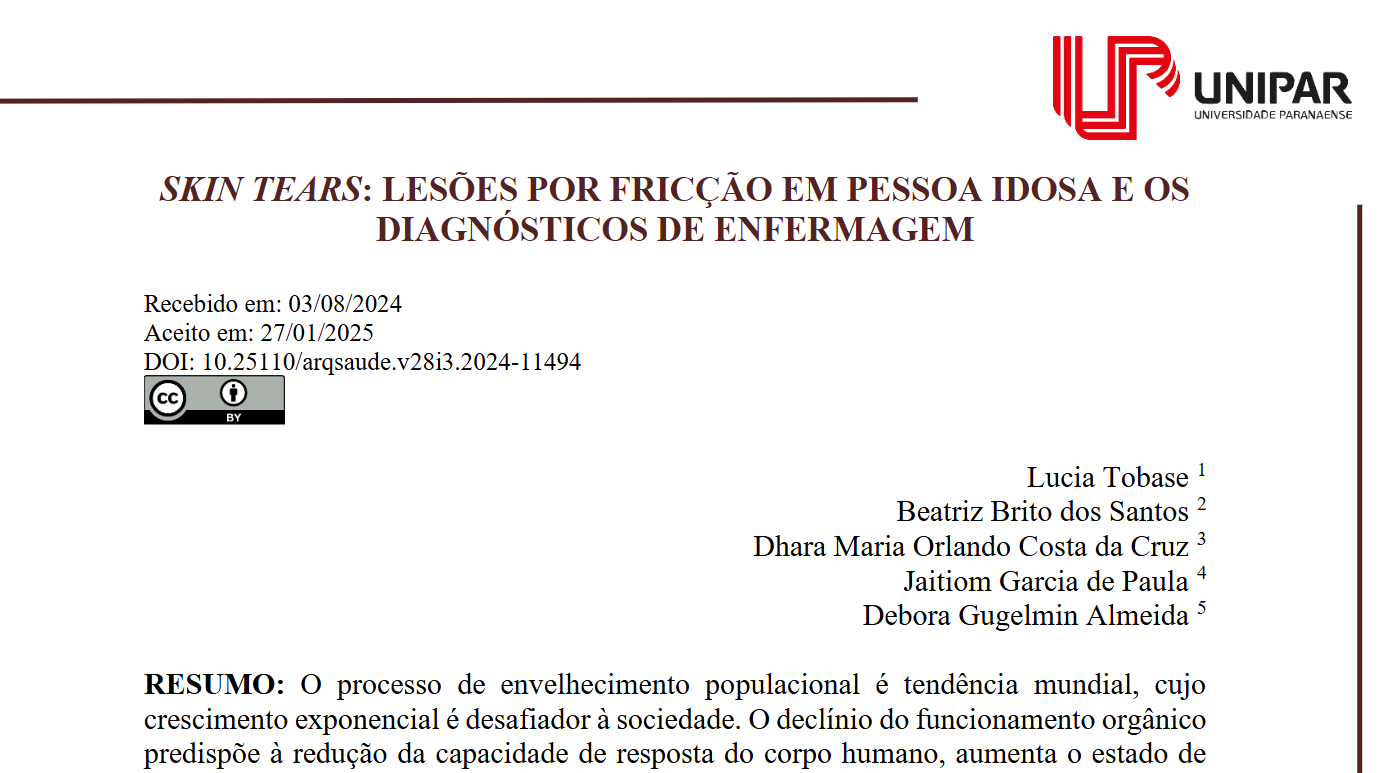
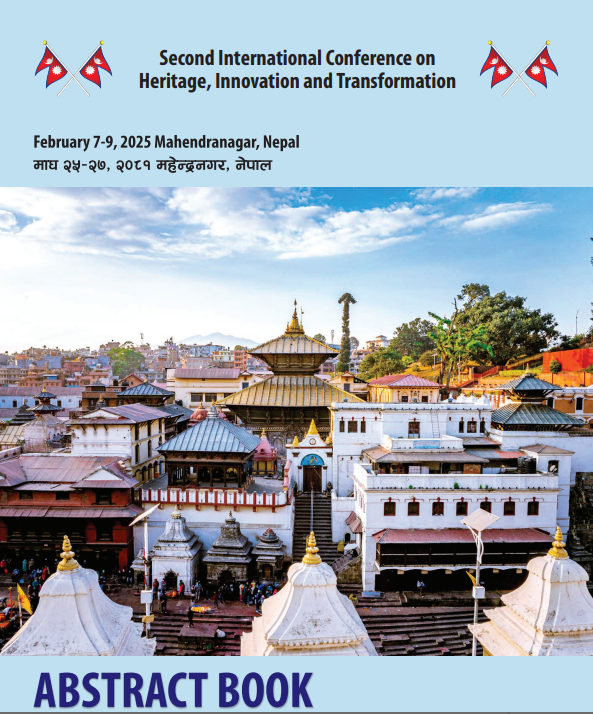
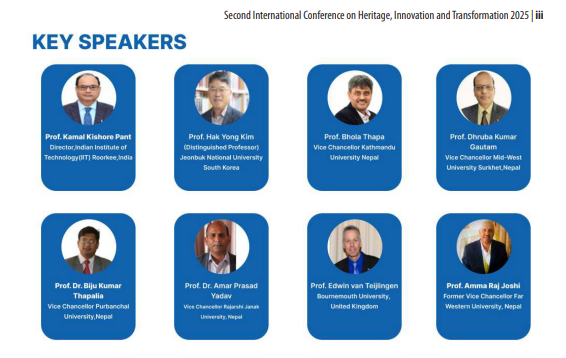











 Expand Your Impact: Collaboration and Networking Workshops for Researchers
Expand Your Impact: Collaboration and Networking Workshops for Researchers Visiting Prof. Sujan Marahatta presenting at BU
Visiting Prof. Sujan Marahatta presenting at BU 3C Event: Research Culture, Community & Can you Guess Who? Thursday 26 March 1-2pm
3C Event: Research Culture, Community & Can you Guess Who? Thursday 26 March 1-2pm UKCGE Recognised Research Supervision Programme: Deadline Approaching
UKCGE Recognised Research Supervision Programme: Deadline Approaching ECR Funding Open Call: Research Culture & Community Grant – Apply now
ECR Funding Open Call: Research Culture & Community Grant – Apply now ECR Funding Open Call: Research Culture & Community Grant – Application Deadline Friday 12 December
ECR Funding Open Call: Research Culture & Community Grant – Application Deadline Friday 12 December MSCA Postdoctoral Fellowships 2025 Call
MSCA Postdoctoral Fellowships 2025 Call ERC Advanced Grant 2025 Webinar
ERC Advanced Grant 2025 Webinar Update on UKRO services
Update on UKRO services European research project exploring use of ‘virtual twins’ to better manage metabolic associated fatty liver disease
European research project exploring use of ‘virtual twins’ to better manage metabolic associated fatty liver disease